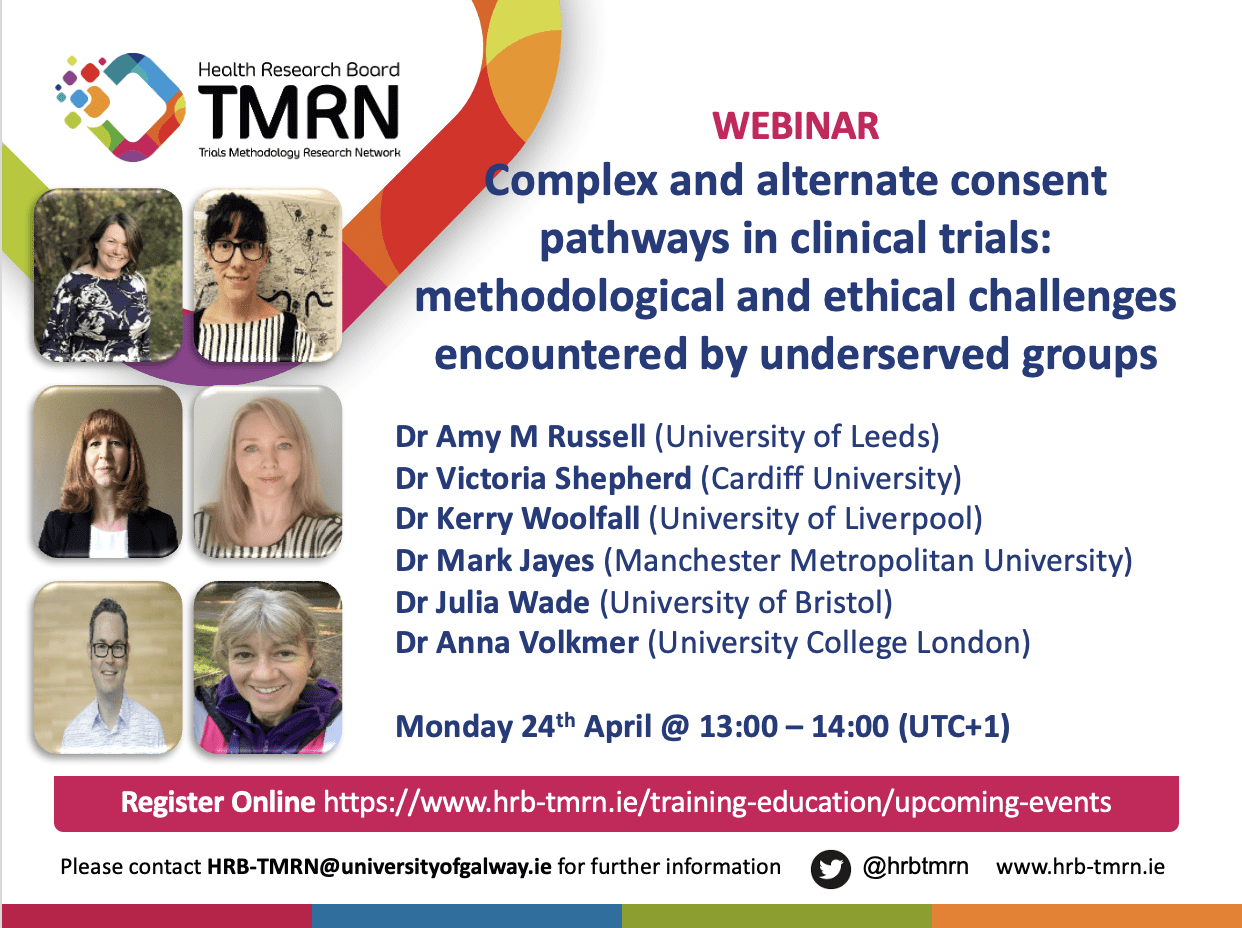Informed consent is considered a fundamental requirement for participation in trials, yet obtaining consent is challenging in a number of populations and settings. These include people with communication or other disabilities, people whose capacity to consent fluctuates, adults who lack capacity to consent, and adults and children in emergency and urgent care settings. These challenges, and the subsequent complexity of conducting trials where alternative consent pathways are required, contribute to these populations being underserved in research. A UK-wide collaboration, a sub-group of the MRC-NIHR TMRP Trial Conduct Working Group, has been formed to collectively address these challenges. Members are drawn from disciplines including bioethics, qualitative research, trials methodology, healthcare professions, and social sciences. In this webinar, members of the collaboration outlined the methodological and ethical challenges issues arising in populations where consent is complex, summarise research that aims to address these challenges, and identify targets for future research. The speakers are all from a sub-group of the MRC-NIHR TMRP Trial Conduct Working Group. The sub-group looks at complex & alternative consent pathways.
Dr Amy M. Russell is a Senior Research Fellow at the University of Leeds. Her research focuses on addressing health inequalities in research design and governance, and clinical practice for “under-served” populations. She coordinated the largest UK feasibility RCT with people with a learning disability and diabetes. Her current research, funded by Wellcome and NIHR and collaborating with the HRA and MRC-NIHR Trial Research Methodology Partnership, aims to improve inclusion in applied health research for under-served populations with a particular focus on people with a learning disability. She works closely the WHO Disability Team, collaborating on the Global Report on Health Equity for People with a Disability 2022 and is the PI on an AHRC interdisciplinary Network to explore the role of arts and humanities methods to improve sexual and reproductive health care for women with disabilities.
Dr Victoria Shepherd is a Senior Research Fellow in the Centre for Trials Research at Cardiff University where she leads a research programme exploring the ethical and methodological challenges around trials involving adults with impaired capacity to consent.
Dr Kerry Woolfall is a Reader in Health Research Methodology at University of Liverpool where she leads the Patient Centred Trials research group. She is methodologist with a mixed methods social science background.
Dr Mark Jayes is Research Fellow in Communication Disability at Manchester Metropolitan University. His applied research explores how people with communication disabilities access information, how they participate in everyday decision-making, and how they can be involved and participate meaningfully in research.
Dr Julia Wade is a qualitative methodologist and Senior Lecturer in Qualitative Health Science applied to Randomised Controlled Trials. She is a member of the QuinteT team of researchers, which pioneers qualitative approaches to optimise recruitment and informed consent to randomised controlled trials (RCTs) at the University of Bristol.
Dr Anna Volkmer is an NIHR funded Senior Research Fellow in Language and Cognition at University College London. She is particularly interested in dementia, and her research focuses on developing speech and language interventions for people with language led dementias and their families.







